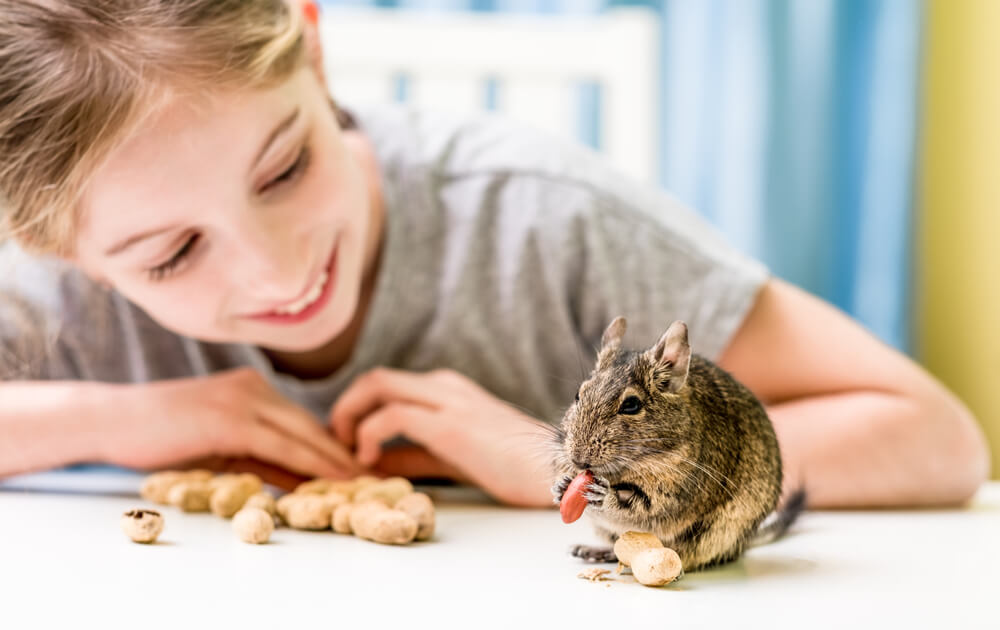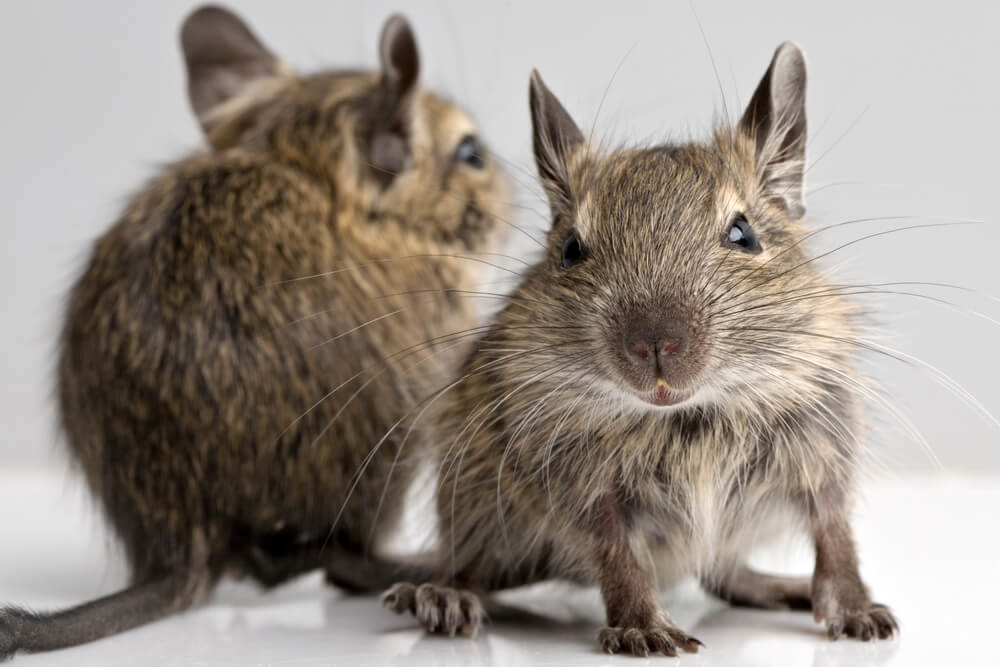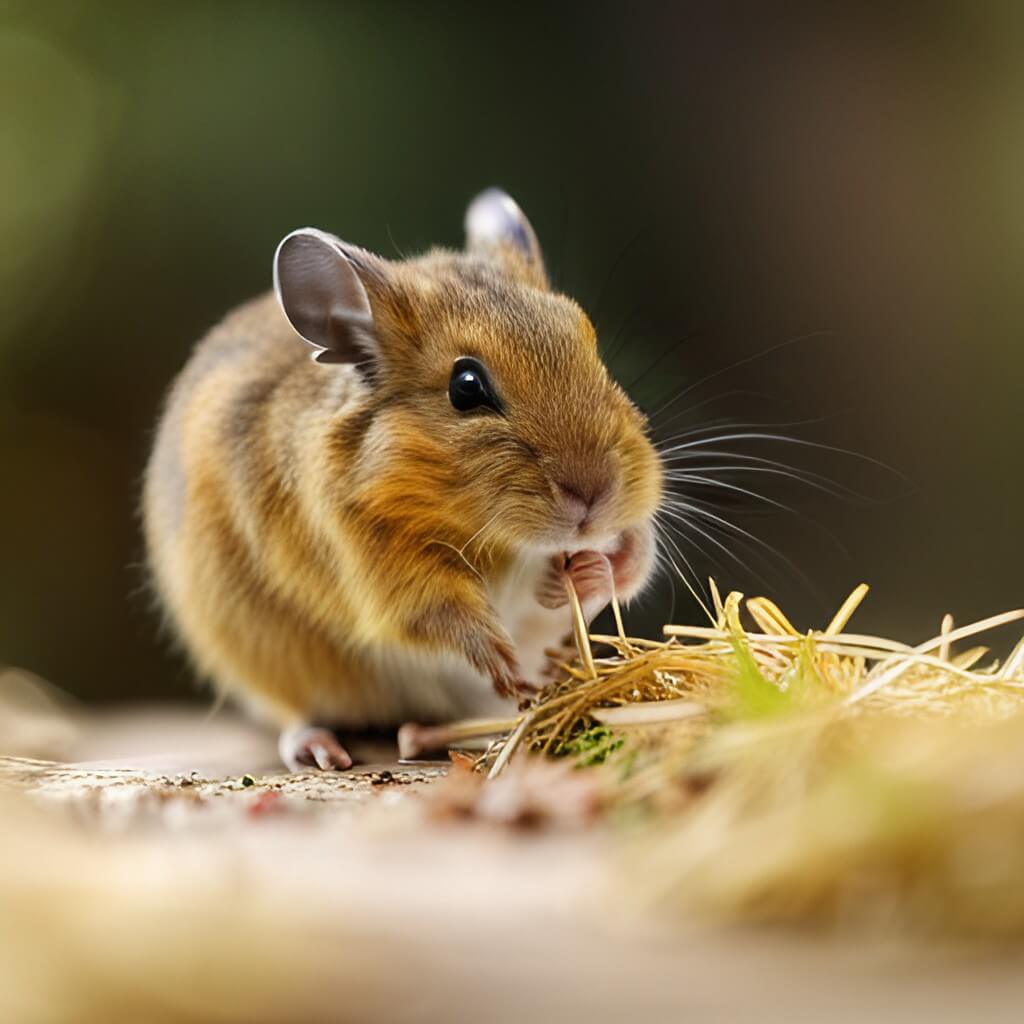Welcome to our informative and engaging blog post, where we delve into the captivating topic of degu teeth. As parents, we always strive to provide the best care for our furry friends, and understanding their dental health is an essential part of that.
In this article, we'll explore various aspects of degu teeth, including their unique coloration, dental care tips, and signs of potential dental issues. So let's embark on this educational journey together and uncover the secrets behind those adorable little teeth!
In this article:
- The Colorful World of Degu Teeth
- Dental Care Tips for Your Degu
- Recognizing Dental Problems in Degus
The Colorful World of Degu Teeth
When it comes to degu teeth, there's more than meets the eye. These charming little rodents boast teeth with fascinating coloration. Typically, their incisors are a vibrant shade of yellow-orange or even orange, resembling the hue of autumn leaves.
This unique feature adds to the overall charm of these delightful creatures and sets them apart from other small pets. As parents, it's essential to be aware of the natural degu teeth color so that you can easily notice any changes that might indicate potential dental issues.
The captivating degu teeth color is not merely an aesthetic feature; it also provides valuable insights into their overall health. As responsible degu owners, we should pay attention to any deviations from the typical orange shade.
For instance, if you observe a noticeable darkening or discoloration of the teeth, it could be a sign of dental disease or other health concerns. Regularly examining your degu's teeth will help you catch any abnormalities early on, allowing for prompt veterinary care if necessary.
Maintaining the vibrant degu teeth color and health of their teeth is crucial for their well-being. To ensure optimal dental hygiene, provide your degu with a balanced diet that includes plenty of hay, fresh vegetables, and high-quality pellets.
Chewing on these fibrous foods helps wear down their continuously growing teeth and prevents overgrowth or malocclusion. Additionally, offering safe chew toys or providing untreated wooden blocks can aid in keeping their teeth in top shape. By implementing these practices, you can contribute to your degu's overall dental health and happiness.
Dental Care Tips for Your Degu
As caring and responsible parents, it's important to prioritize your degu's dental care. Establishing a regular dental care routine can help prevent potential issues and maintain your degu's oral health.
Start by ensuring that your degu has access to fresh, clean water at all times. Proper hydration is essential for the overall health of their teeth and gums. Additionally, introduce a suitable tooth-friendly diet that meets their nutritional needs while promoting dental well-being.
Incorporating dental wear into your degu's routine is crucial to prevent overgrowth and dental problems. Provide them with plenty of chew toys, hay, untreated wooden blocks, and mineral blocks that provide provide calcium, salts and more. These items will not only keep your degu entertained but also help naturally wear down their teeth. Remember to inspect the chew toys regularly to ensure they remain safe and free from any hazards that could harm your little friend.
Regular veterinary check-ups play a vital role in maintaining your degu's dental health. A qualified veterinarian experienced in small exotic pets will be able to examine your degu's teeth thoroughly and identify any potential issues.
They may recommend professional dental cleanings or other treatments if necessary. By proactively seeking professional advice, you can give your degu the best chance for a lifetime of healthy and happy teeth.
Recognizing Dental Problems in Degus
While providing diligent dental care is important, it's also crucial to be vigilant for any signs of dental problems in your degu. Dental issues can impact your pet's overall well-being and cause discomfort or pain if left untreated.
A degu’s teeth are naturally a yellow-orange color. The color comes from the iron in the degu’s diet. So if you notice that your degu’s teeth are only white, that can be a sign of poor health and worth a visit to your vet.
Keep an eye out for symptoms such as excessive drooling, difficulty eating, weight loss, reluctance to chew, or a change in appetite. These signs could indicate dental disease or malocclusion, where the teeth don't align properly.
If you observe any concerning signs or suspect dental issues, it's essential to seek veterinary care promptly. An experienced veterinarian can perform a comprehensive dental examination and provide appropriate treatment.
Depending on the severity of the issue, treatment options may include teeth filing, extraction, or other specialized procedures. Remember, early intervention can prevent further complications and help your degu regain their oral health.
Maintaining open communication with your veterinarian is crucial when it comes to your degu's dental well-being. Regularly discuss your degu's dental care routine, any changes in their behavior or eating habits, and seek professional advice whenever needed. By working together with your vet, you can ensure that your degu receives the necessary care and support for healthy teeth throughout their life.
7 Facts About Degu Teeth:
- Degu teeth are naturally vibrant orange in color, adding to the charm of these adorable rodents.
- The coloration of degu teeth provides valuable insights into their overall health and can help detect dental issues early on.
- Maintaining proper dental hygiene is essential for degus, and a balanced diet including hay, fresh vegetables, and pellets helps keep their teeth healthy.
- Chewing on fibrous foods and safe chew toys helps degus naturally wear down their continuously growing teeth and prevents overgrowth.
- Regular veterinary check-ups are crucial for degu dental health, and professional dental cleanings may be recommended if needed.
- Signs of potential dental problems in degus include excessive drooling, difficulty eating, weight loss, reluctance to chew, and changes in appetite.
- Seeking prompt veterinary care when observing dental issues in degus can prevent further complications and ensure their oral health.
Conclusion:
In short, understanding the world of degu teeth is key to providing optimal care for these charming little rodents. By recognizing the unique degu teeth color and monitoring any changes, we can identify potential dental problems and seek timely veterinary care.
Implementing proper dental care practices, such as offering a tooth-friendly diet and providing chew toys, promotes the well-being of degus' teeth. Additionally, regular check-ups with a knowledgeable veterinarian ensure a lifetime of healthy smiles for our furry friends. By prioritizing degu dental health, we can contribute to their overall happiness and well-being.







